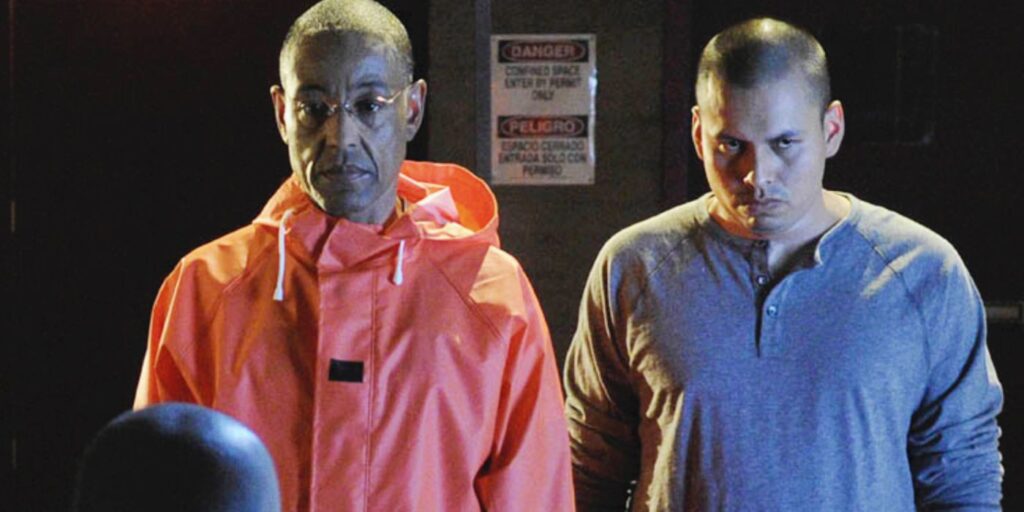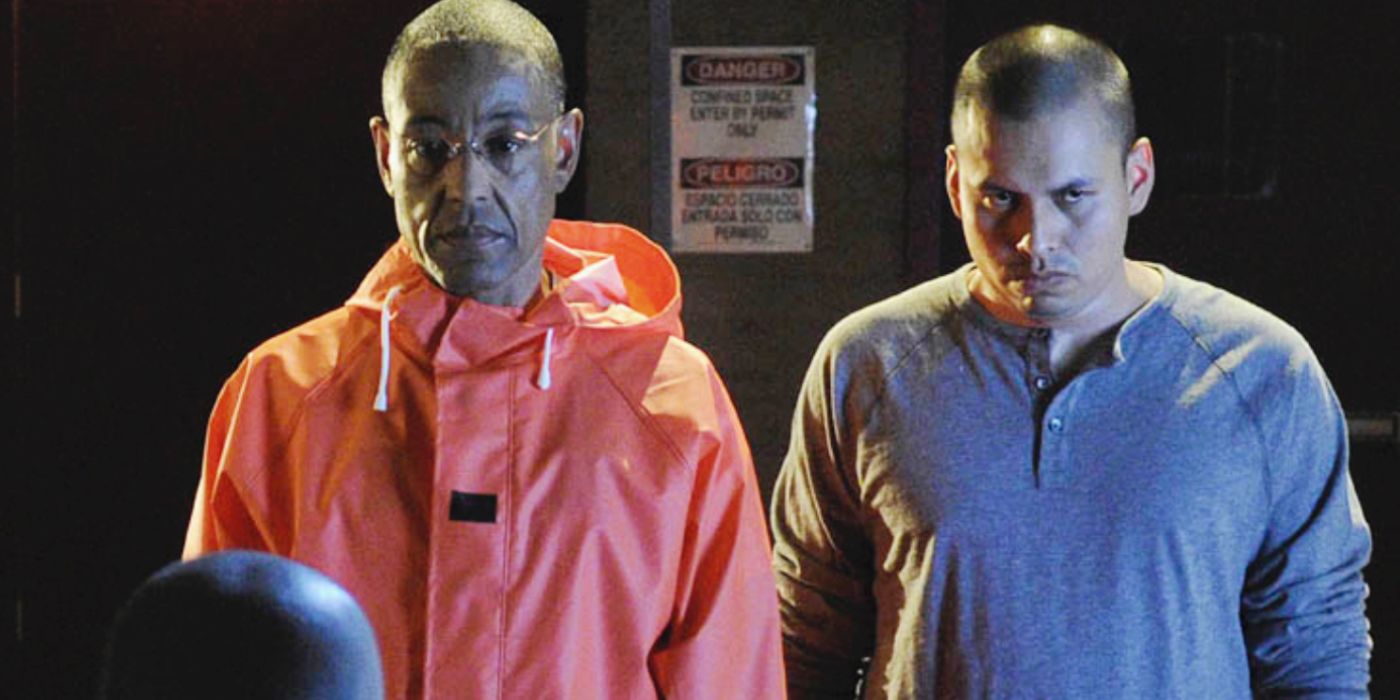
Victor’s Demise in Breaking Bad: A Shocking Turning Point
The death of Victor in Breaking Bad remains one of the most shocking and pivotal moments in the critically acclaimed television series. Victor, portrayed by actor Jeremiah Bitsui, served as one of Gus Fring’s trusted enforcers and played a significant role in the meth empire. His sudden and brutal execution at the hands of Gus himself sent shockwaves through the narrative, drastically altering the dynamics between the central characters and setting the stage for the escalating conflict that defined later seasons. This article delves into the context of Victor’s death, exploring the motivations behind Gus’s actions, the immediate consequences, and the lasting impact on the overall storyline of Breaking Bad.
The Context Leading to Victor’s Death
Before examining the specifics of Victor’s demise, it’s crucial to understand his role within Gus Fring’s organization. Victor was more than just a henchman; he was a loyal and capable operative who often assisted in the daily operations of the meth lab. His competence and dedication made him a valuable asset to Gus. However, Victor’s ambition and occasional overreach ultimately contributed to his downfall. He possessed a practical understanding of the meth-cooking process, as demonstrated when he temporarily took over production after Gale Boetticher’s murder. This initiative, while intended to be helpful, inadvertently threatened Gus’s meticulously planned control over Walter White and Jesse Pinkman.
The tension leading up to Victor’s death was palpable. Walter and Jesse had just carried out Gus’s orders to eliminate Gale, a chemist whom Gus intended to replace Walter. This act, while seemingly solidifying their position, actually made them more vulnerable. Gus, a master of control and manipulation, needed to reassert his dominance and send a clear message. Victor, by involving himself too deeply in the aftermath of Gale’s murder, became a convenient scapegoat and a symbol of the consequences of disobedience.
The Brutal Execution
The scene of Victor’s death is undeniably one of the most disturbing in Breaking Bad’s history. After Walter and Jesse arrive at the lab, still reeling from the events of the previous night, Gus arrives unexpectedly. Without uttering a word, he grabs a box cutter and slashes Victor’s throat. The act is swift, brutal, and devoid of emotion. The silence that follows is deafening, punctuated only by the horrified reactions of Walter and Jesse. Gus’s cold and calculated demeanor underscores the ruthlessness of his character and his willingness to eliminate anyone, regardless of their loyalty, to maintain control.
The manner of Victor’s death is particularly significant. The use of a box cutter, a seemingly mundane object, highlights the banality of evil. It’s a stark reminder that violence can erupt unexpectedly and that even the most ordinary tools can be instruments of death. Moreover, the fact that Gus performs the execution himself emphasizes his personal involvement and his desire to send a direct message to Walter and Jesse. It was a demonstration of power and a chilling reminder of the consequences of crossing him.
Gus Fring’s Motivations
Several factors contributed to Gus Fring’s decision to kill Victor. Firstly, Victor’s presence at the scene of Gale’s murder made him a potential liability. Although Victor was loyal, Gus could not risk him being questioned by the authorities and potentially revealing information about the meth operation. Eliminating Victor removed a loose end and protected the integrity of the enterprise.
Secondly, Victor’s attempt to replicate Gale’s work demonstrated a level of independence that Gus found unacceptable. Gus needed Walter White to cook the blue meth. Victor proving he could do it himself undermined Walter’s value and disrupted Gus’s carefully constructed power dynamic. Gus needed to remind everyone, including Walter and Jesse, that he was in control and that their roles were strictly defined.
Finally, Victor’s death served as a stark warning to Walter and Jesse. It was a clear message that disobedience and unauthorized actions would not be tolerated. Gus used Victor’s execution to reassert his dominance and instill fear, ensuring that Walter and Jesse would remain compliant. The shock and trauma of witnessing Victor’s murder served as a powerful deterrent, forcing them to reconsider any thoughts of rebellion or independence.
The Immediate Consequences
The immediate aftermath of Victor’s death was marked by tension and uncertainty. Walter and Jesse were deeply shaken by what they had witnessed, and the fear of suffering a similar fate loomed large. The execution further strained their already fragile relationship with Gus, creating an atmosphere of mistrust and paranoia. They understood that their lives were entirely dependent on Gus’s whims and that any misstep could have fatal consequences.
The execution also had a practical impact on the meth operation. Victor’s death left a void in Gus’s organization, requiring him to reassign responsibilities and adjust his plans. While Victor was ultimately expendable, his absence created logistical challenges and forced Gus to adapt to the new circumstances. This disruption, however minor, contributed to the overall instability and uncertainty that characterized the later seasons of Breaking Bad.
The Lasting Impact on the Storyline
Victor’s death had a profound and lasting impact on the overall storyline of Breaking Bad. It marked a significant turning point in the series, signaling a shift towards darker and more violent themes. The execution shattered any remaining illusions about Gus Fring’s true nature, revealing him as a ruthless and calculating criminal mastermind willing to do anything to protect his empire. This revelation fundamentally altered the audience’s perception of Gus and set the stage for the inevitable confrontation between him and Walter White.
Moreover, Victor’s death played a crucial role in Walter White’s transformation. Witnessing the execution had a profound psychological effect on Walter, contributing to his descent into darkness and his embrace of the Heisenberg persona. The experience hardened him, making him more willing to resort to violence and manipulation to achieve his goals. In a sense, Victor’s death served as a catalyst for Walter’s moral decay, accelerating his transformation from a mild-mannered chemistry teacher into a ruthless drug lord.
The event also deepened the rift between Walter and Jesse. While they were already struggling to reconcile their actions with their consciences, Victor’s death pushed them further apart. Jesse, in particular, was deeply affected by the violence and became increasingly disillusioned with the drug trade. This disillusionment ultimately led him to seek redemption and to distance himself from Walter, contributing to the dramatic climax of the series. The death of Victor, therefore, served as a pivotal moment that shaped the destinies of the central characters and propelled the narrative towards its inevitable conclusion.
In conclusion, Victor’s death in Breaking Bad was more than just a shocking act of violence; it was a carefully calculated move that had far-reaching consequences. It served to reassert Gus Fring’s dominance, warn Walter White and Jesse Pinkman, and catalyze Walter’s transformation into Heisenberg. The execution remains a pivotal moment in the series, underscoring the dark and unpredictable nature of the drug trade and the devastating impact it has on those involved. The brutal and unexpected demise of Victor is a testament to the masterful storytelling of Breaking Bad and its ability to shock, disturb, and ultimately captivate its audience. The memory of Victor’s demise serves as a constant reminder of the stakes involved in the high-stakes world of meth manufacturing, highlighting the ever-present threat of violence and the fragility of life. The impact of Victor dies reverberates throughout the remainder of the series, shaping the actions and motivations of the remaining characters. Understanding the context surrounding Victor’s death is crucial to fully appreciating the complexities of the Breaking Bad narrative. The event underscores the ruthlessness of Gus Fring and his unwavering commitment to maintaining control. Ultimately, Victor’s demise is a stark reminder of the consequences of crossing Gus Fring and the price of loyalty in the drug trade. The killing of Victor was a key moment. Victor’s death was shocking. The character, Victor, met an untimely end. The scene where Victor dies is memorable. Victor was killed to send a message. The death of Victor changed everything. One of the most shocking scenes was when Victor dies. The character Victor and his death. Victor’s demise was a turning point. The Victor dies scene is one of the most talked about moments from the show. It is important to remember how Victor dies.
[See also: Gus Fring’s Rise to Power in Breaking Bad]
[See also: Walter White’s Transformation into Heisenberg]
[See also: The Moral Ambiguity of Breaking Bad]

